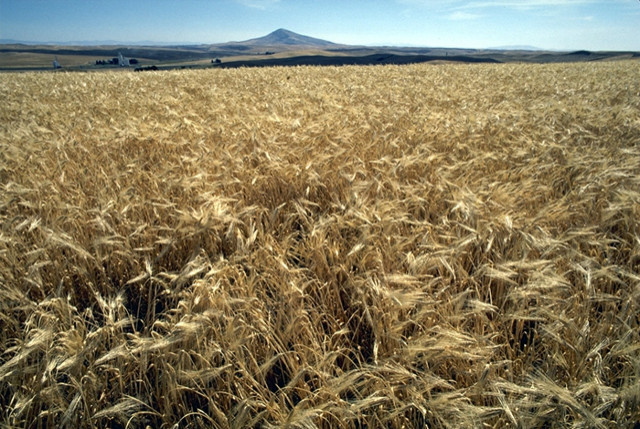Barley Genome Means Better Beer And Whiskey Thanks to Science

Your better and whiskey may be getting thanks to science. Researchers have unlocked the genetic code of barley, a key ingredient in both beer and spirits. Unlocking the barley genome can also provide a boost for crop production.
By sequencing the genetic code of barley, scientists can better not only beer and whiskey, but the crop itself. By understanding the barley genome, researchers can target ways to improve crop production, resistance to disease and nutritional properties.
The research was published in Nature. The barley genome is nearly double the size of the human genome with more than 32,000 genes. It's 12 times the size of the rice genome.
Manipulating the barley genome, according to NBCNews.com, could lead to barley variants that are ideal for producing better batches of beer and whiskey. For beer, barley is used during the malting process. During this important step, enzymes are created that break down starches into sugars. Barley is primarily used in Scottish and Irish whiskeys. Rye, wheat and corn tend to be used more in U.S. whiskeys.
Aside from its use in alcoholic beverages, barley is a very important cereal grain. Barley is the fourth most important cereal crop according to NBCNews.com. Barley is also used in breads, soups and animal feed and has been a staple of the human diet for centuries. Nearly 75 percent of barley produced is used for animal feed, 20 percent is used for malting and 5 percent is used for food.
According to researchers, most of the genome is "junk DNA." In a statement, Timothy Close, a professor of genetics at the University of California Riverside and member of the research team, stated “The UCR team first identified gene-rich segments of the genome, called BACs. Then we determined the primary sequence of more than 2,000 of these BACs.”
BACs, or bacterial artificial chromosomes, are vital for genetic sequencing. In this case, a small piece of barley’s DNA can be found in BACs. From there, researchers can then recreate and sequence the genome using a computer simulation. According to the researchers at UC Riverside, the barley genome can lead to further research in related grass crops such as wheat and rye.
While there may be a bacon shortage in the future, chances are likely that, thanks to research like this, there will be no fear of a beer or whiskey shortage.
© Copyright IBTimes 2024. All rights reserved.






















